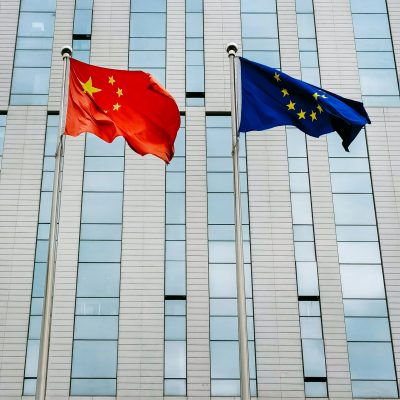Quelles garanties de sécurité européennes possibles pour l’Ukraine ?

Citer cet article :
Haroche, P. 2023. «Quelles garanties de sécurité européennes possibles pour l’Ukraine ?», Décryptage, mars 2023.
Tout règlement du conflit russo-ukrainien, qu’il soit négocié ou non avec la Russie, se devra d’inclure des garanties de sécurité à destination de l’Ukraine, afin que le pays ne puisse plus se retrouver dans la position de vulnérabilité qui fut la sienne le 24 février 2022. Cet objectif est explicitement mentionné au point 9 du plan de paix proposé par l’Ukraine.
En théorie, ces garanties de sécurité pourraient au moins en partie être négatives, émanant de la Russie elle-même. Celle-ci devrait alors démontrer de façon crédible qu’elle s’engage à respecter la souveraineté et l’intégrité territoriale de l’Ukraine. Un dispositif mêlant zones démilitarisées à proximité de la frontière ukrainienne et présence d’observateurs internationaux pourrait être envisagé. Cependant, à ce jour, la perspective d’un tel accord reste plus qu’incertaine. Et le précèdent du Mémorandum de Budapest, ouvertement violé, n’incite pas à placer beaucoup d’espoir dans ce type d’engagement de la part de Moscou1. Ces difficultés ne rendent que plus essentielles les garanties de sécurité positives que pourraient offrir les alliés de l’Ukraine. Dans ce cas, il s’agirait notamment d’un engagement à soutenir Kyiv face à une agression armée.
De telles garanties découleraient automatiquement de l’adhésion de l’Ukraine à l’OTAN et à l’Union européenne (UE), dont les traités disposent de clauses d’assistance mutuelle dans leurs articles 5 et 42-7, respectivement. Si l’Ukraine s’est vue reconnaître le statut de candidat à l’UE le 23 juin 2022, il est néanmoins admis que ce processus prendra du temps, même en cas de cessation des hostilités avec la Russie. La Pologne et les pays baltes soutiennent la possibilité d’une procédure accélérée, mais cette option ne fait aujourd’hui pas consensus parmi les 272 . L’article 42-7 ne constitue donc pas une solution viable pour le moyen terme.
Quant à une adhésion à l’OTAN, elle pourrait être actée plus rapidement, dans la mesure où elle n’implique pas la mise en conformité juridique et économique liée à l’adhésion à l’UE. Le principal obstacle à l’adhésion de l’Ukraine à l’OTAN a longtemps été l’hostilité de la Russie et le désir de certains États membres d’éviter tout signal pouvant être interprété, à tort ou à raison, comme une menace à l’égard de Moscou. On pourrait faire valoir que l’invasion conduite depuis le 24 février 2022 a fait perdre son sens à cette posture prudente3. Néanmoins, certains, en particulier le président français, continuent à soutenir qu’il serait inopportun pour l’Alliance de prendre une décision «perçue par la Russie comme quelque chose de confrontationnel».
Ces difficultés au niveau multilatéral ont justifié la recherche d’une solution ad hoc réalisable à court terme, confiée par le Président Zelensky à son chef de cabinet Andryi Yermak et à l’ex-Secrétaire général de l’OTAN Anders Fogh Rasmussen5. Les auteurs recommandent la mise en place d’un pacte de sécurité réunissant des États garants, qui s’engageraient, en cas d’agression contre l’Ukraine, à lui venir en aide par tous les moyens à leur disposition. Le rapport évoque comme garants potentiels « les États-Unis, le Royaume-Uni, le Canada, la Pologne, l’Italie, l’Allemagne, la France, l’Australie, la Turquie et les pays nordiques, baltes et d’Europe centrale ».




